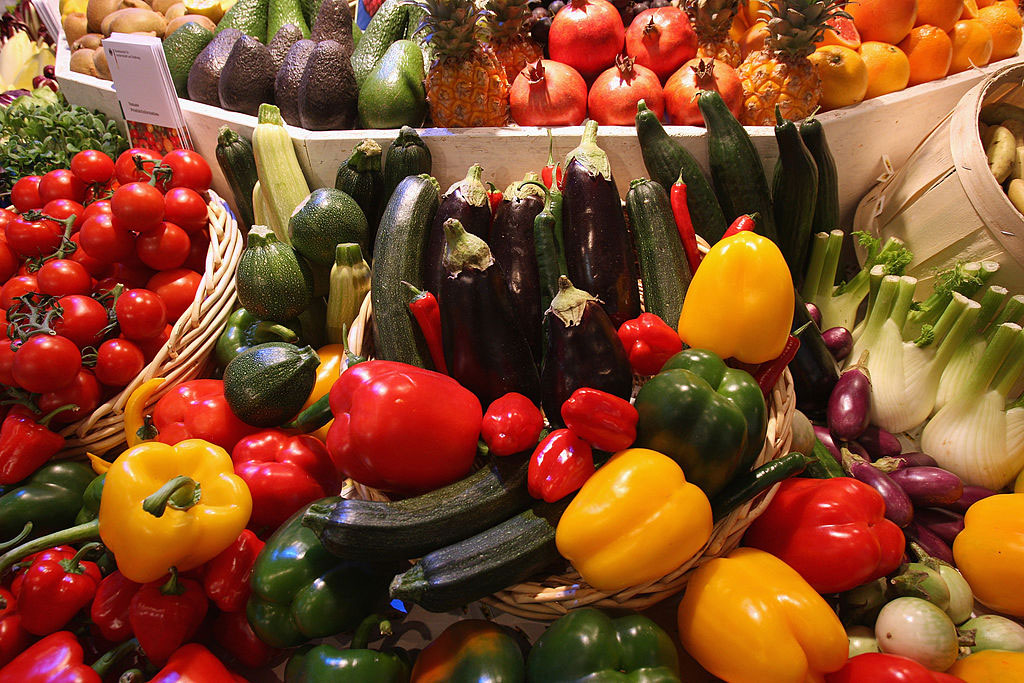How to Eat Healthy as You Age

Knowing the nutrients you need and how to get them is the key to good health.
As you age, you can help maintain your level of health with a healthy diet rich in minimally processed foods.
Despite your previous eating habits, you can change the way you eat with a focus on healthy foods.
YOU MIGHT ALSO LIKE: Aging and Driving Safely
Healthy food choices are important at any age, but especially so as your body changes with aging. It’s important to go for colorful fruits, dark, leafy greens full of antioxidants, calcium, whole grains, healthy fats, and protein.
Put some thought into a well-planned, balanced mix of foods every day. This can reduce your risk of heart disease, stroke, type 2 diabetes, bone loss, some kinds of cancer, and anemia.
If you already have any of these chronic conditions, eating well and staying physically active can keep them in check. Healthy eating may also help you reduce high blood pressure, lower high cholesterol, and manage diabetes.
There are 13 vitamins — C, A, D, E, K, and the B vitamins (thiamine, riboflavin, niacin, pantothenic acid, biotin, B6, B12, and folate). Minerals also help maintain your bodily function. Those include iodine and fluoride, calcium, magnesium and potassium.
“Eating well gives you the nutrients needed to keep your muscles, bones, organs, and other parts of your body healthy throughout your life,” according to the National Institute on Aging. “Eating well helps keep your energy level up, too. Consuming the right number of calories for your level of physical activity helps you control your weight, (and) your food choices also affect digestion.”
Eating healthily doesn’t have to be complicated or boring. It’s actually about variety so you get all the nutrients you need and maintain a healthy weight.
“It’s about not eating too much of some things – like saturated fat, sugar and salt – while getting enough of others – like fiber, protein, vitamins and minerals,” writes Age UK.
The definition of healthy eating does change a little as you age. “For example, as you grow older, your metabolism slows down, so you need fewer calories than before. Your body also needs more of certain nutrients,” according to the National Council on Aging. “ That means it’s more important than ever to choose foods that give you the best nutritional value.”
You should also consume less sodium, which can lead to high blood pressure, and drink enough fluids. Too little fluid can increase your risk of falls, urinary tract infections, dental issues, kidney stones, and constipation.
YOU MIGHT ALSO LIKE: Protecting Your Mobility in Old Age
Similarly, it's important to get all the energy and nutrients that your body needs. If you don't eat as much as you used to, eat smaller meals more often and supplement them with nutritious snacks, such as fruits, vegetables, and wholegrain toast.
“You may eat less because you find it more difficult to buy or prepare food, or because you find it harder to get around if you have a condition such as arthritis,” writes Health Direct. “Eat regularly, at least three times a day. If you don't feel like cooking from scratch, have a tinned, chilled, or frozen ready-prepared meal instead. It's a good idea to have a store of foods in the freezer and cupboard in case you cannot go out.”
As you age you might have trouble chewing or swallowing, so switch to softer foods but make sure they’re nutrient dense, according to the University of Wisconsin Health.
Softer foods include smooth yogurt, boiled or cooked eggs, soft cheeses, cottage cheese, ground cooked meat or poultry, baked, broiled, or poached fish, soft cooked or canned vegetables, legumes, potatoes, and squash.
If you’re on a budget, tips to save some money while eating well include making a shopping list before you go to the grocery store and buying only items on the list, planning meals and snacks in advance (that will help you organize your grocery list and pick foods on sale), reviewing store flyers for coupons and specials, choosing store brands instead of brand names, and eating at restaurants that offer senior discounts.
Growing older doesn’t mean a switch to boring and bland food. It just requires more forethought and planning to make sure you’re get the nutrition you need to stay strong and healthy. By following some simple guidelines, you can ensure you’re getting the nutrition you need and still enjoying what you eat.
Updated:
April 07, 2020
Reviewed By:
Janet O’Dell, RN